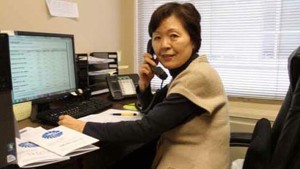October is an important month for adults needing to secure insurance coverage. Not only is October 1st open enrollment for the Health Insurance Marketplace, but October 15th is the beginning of the Medicare Part D Open Enrollment period. Once enrolled in a prescription drug plan, it’s easy to forget the importance of checking annually to make sure your current plan is the most appropriate and cost effective.
The lack of in-language assistance available to Asian American and Pacific Islander elders makes it challenging for many to understand and to complete the enrollment process for important benefit programs such as Medicare, Medicaid, and Social Security. The National Asian Pacific Center on Aging was founded to ensure that Asian American and Pacific Islander seniors were able to effectively access the programs, services, and benefits that are available to all older adults. Thirty-four years later, NAPCA operates federal employment programs, promotes healthy aging initiatives, and assists limited English speaking elders to better navigate federal programs such as Medicare.
In 2005, NAPCA established the only national, toll-free, Asian language Helpline to ensure that Mandarin, Cantonese, Korean, and Vietnamese speaking elders would have language accessible assistance to understand and enroll in Medicare Part D prescription drug plans. NAPCA staff have answered over 90,000 calls through the Helpline. As a result of calls received during the 2010 and 2011 open enrollment periods, the Helpline saved callers on average, $838 for plan year 2011 and $1,082 for plan year 2012. Total savings amounted to almost $299,000 in 2011 and $178,500 in 2012.
Asian American older adults age 65+ represent one of the fastest growing segments of the U.S. population. Asian American older adults are expected to increase to approximately 7.5 million by 2050. The majority of Asian American older adults immigrate as adults, which is a factor in the high limited English proficiency among Asian Americans. Over two-thirds of all Asian American seniors do not speak English well and one-half of Korean, Chinese, and Vietnamese seniors live in a household where English is not spoken. For these populations, access and understanding of healthcare and healthcare benefits can be extremely challenging.
While some federal agencies have expanded their language accessible materials, more resources are needed to ensure that elders of color, including those with language barriers are not left behind.


